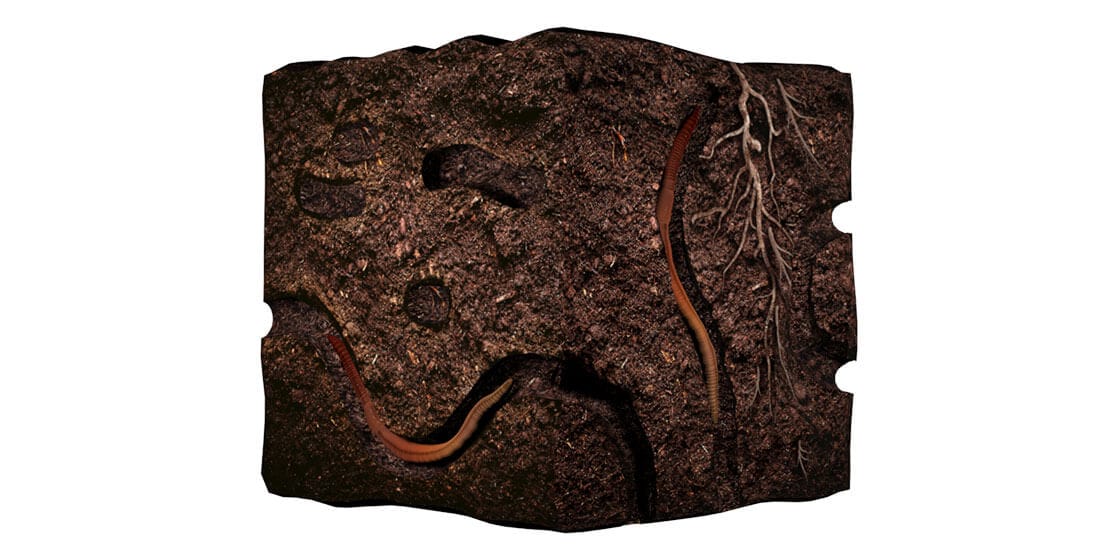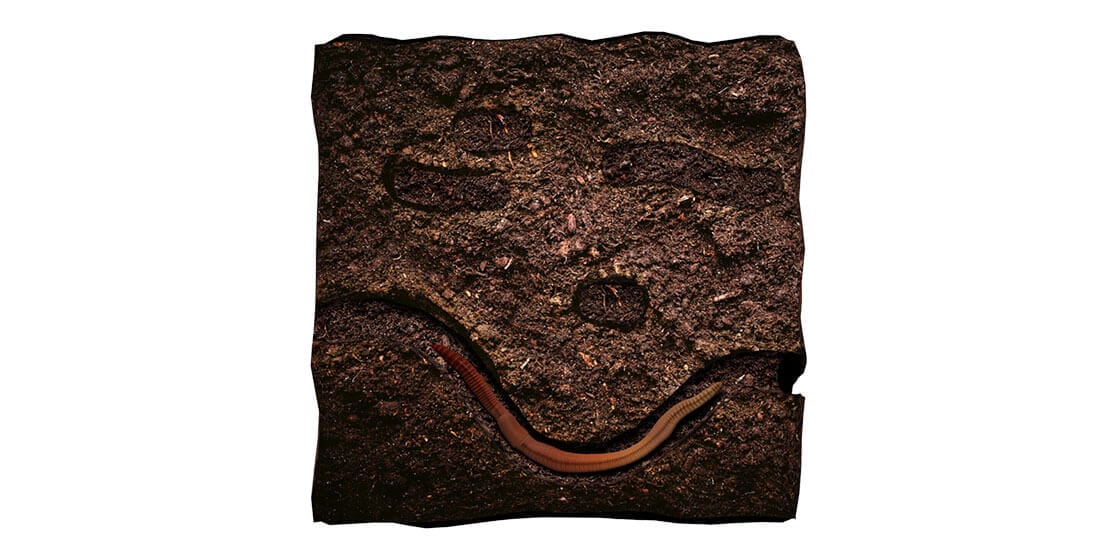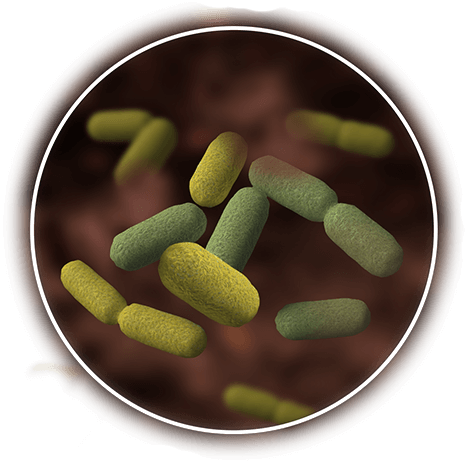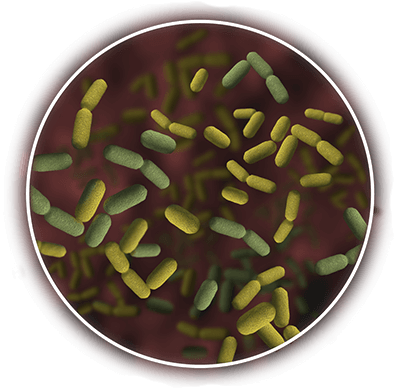As they burrow into the soil, earthworms make it easier for plants (or crops) to take root and grow. This natural movement can improve soil health by allowing water and air to permeate without using machines powered by fossil fuels, like tractors. These sub-soil navigators build the tunnels and paths that lead to healthier soils, plants and environments.
Earthworms help put the organic matter back into the soil by ingesting decaying plant and root residues for nutrition and recycling them into nutrients and soil carbon. This process can supplement, or even reduce the need for energy-intensive fertilizers.
The burrows created by earthworms serve as natural pathways for water, air and fertilizer. Through these worm-hole canals, plants find and take in nutrients quickly and more efficiently.
While moving through the soil, earthworms convert decaying residue and raw, in-soil nutrients into forms plants can easily access and absorb.
Inside the gut of earthworms, you’ll find millions of beneficial microbes. Once released, bacteria help fill the soil with nutrients like nitrogen and phosphorus.
Earthworms can encourage a more diverse population of soil microbes. Maintaining beneficial microbes, as well as bacteria, fungi and other organisms, is critical to soil conservation. Earthworms also serve as a key link in the food chain, providing a source of food, mostly consumed by birds.








